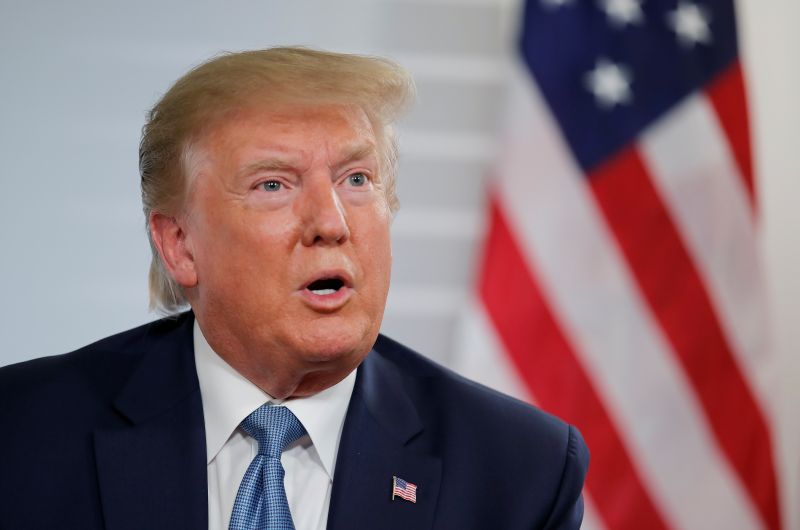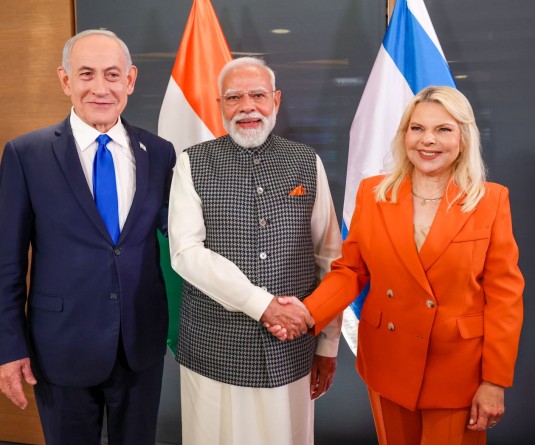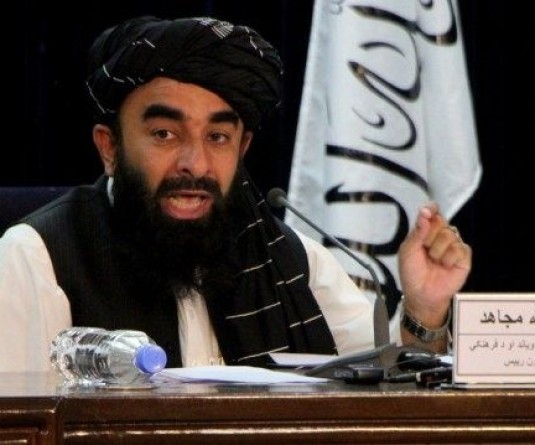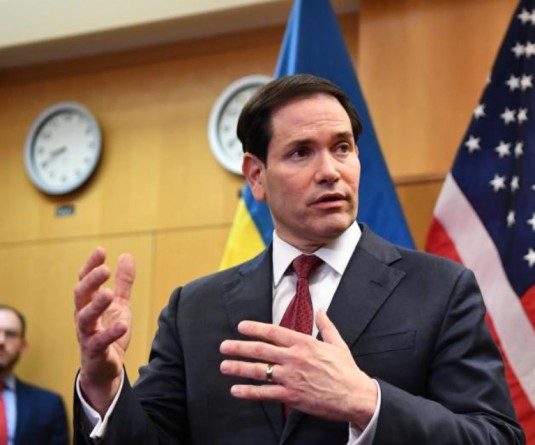Trump regrets not raising tariffs on China higher, White House says

U.S. President Donald Trump speaks as he attends a bilateral meeting with Japan's Prime Minister Shinzo Abe (not pictured) during the G7 summit in Biarritz, France on August 25. (REUTERS Photo)
BIARRITZ, France, August 25 (Reuters): When President Donald Trump said on Sunday that he had second thoughts about escalating the trade war with China, he meant that he wished he had raised tariffs on Beijing even higher, the White House said.
Trump, who announced higher tariffs on Chinese goods last week, raised eyebrows during a meeting with British Prime Minister Boris Johnson at the G7 when he responded in the affirmative to questions from reporters on whether he had any second thoughts about the tariff move.
White House spokeswoman Stephanie Grisham sought to explain the remark.
"His answer has been greatly misinterpreted. President Trump responded in the affirmative - because he regrets not raising the tariffs higher," she said in a statement.
Trump on Friday set an additional 5% duty on some $550 billion in targeted Chinese goods, hours after China unveiled retaliatory tariffs on $75 billion worth of U.S. goods.
The moves were the latest round in a tit-for-tat trade war between the world's two largest economies that has damaged global growth, upset allies, and raised market fears that the world economy will tip into a recession.
During his meeting with Johnson on Sunday in France, Trump was asked if he had second thoughts about his latest escalation.
"Yeah, sure. Why not?" he said.
The reporter repeated the question and Trump replied: "Might as well. Might as well."
A second reporter followed up again, asking if he had second thoughts about escalating the trade war with China.
"I have second thoughts about everything," Trump responded.
The president's responses were unusual because he has been largely resolute in his demands that China change its trade practices and that tariffs were a successful tool to encourage Beijing to do so.
On Friday, upset about China's retaliation, the president said he was ordering U.S. companies to find alternatives to doing business in China and move operations back to the United States.
It was unclear what Trump could do to legally compel U.S. companies to abandon China.
Asked on Sunday if he would declare a national emergency over the issue, Trump said he had the right to do so but had no plans in the works.
"I could declare a national emergency. I think when they steal and take out, and -- intellectual property theft, anywhere from $300 billion to $500 billion a year, and where we have a total loss of almost a trillion dollars a year ... in many ways, that's an emergency," he said.
"I have no plan right now. Actually, we're getting along very well with China right now. We're talking. I think they want to make a deal much more than I do."






